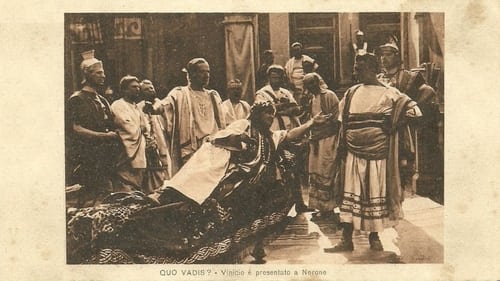
Ursus
"The Roman Banquet, the golden glories, the unrivaled luxuries, the wine, the dance, the song, the beautiful women, the sumptuous splendors that taxed a barbaric world for a night of feasting and revel-- Re-created for your entertainment in the most colossal drama produced", reads an ad in the Daily Argus of New York. Unione Cinematografica Italiana's lavish production of the oft-told tale stars Emil Jannings as Nero.

Tigrane
In ancient Rome, tyrannical Emperor Caligula is assassinated through the machinations of Messalina. She then makes a conquest of Marcus, who forces the Senate to name her husband, Claudius, as emperor. Messalina's wicked ways continue when she falls in love with Ennio, a slave. Ennio is also loved by Egyptian princess Mirit, but he loves neither of them, preferring the company of Ela, a Greek slave.

Early Italian pirate adventure.

Cain
Lavish Italian production dramatizing stories from the Old Testament/Hebrew Bible. Much of the film is lost except for an hour of rough footage, further sullied by cropping and earnest, dull narration.

In "Fabiola" (1918) Herr Guarzzoni moved from the earliest days of Christianity when the new faith was struggling to just survive to a later period in the Roman Empire when the religion was a major force and attempting to win over Rome.

Based loosely on Shakespeare's play, Plutarch's "Life of Antony", and Pietro Cossa's dramatic poem, "Cleopatra", this movie was spectacular for its time. It offers location shots made in Italy and Egypt, large crowd scenes (e.g., the Roman army embarking in Alexandria), lots of emotional drama (Marc Antony & Cleopatra, his wife Octavia, sister of Antony's rival Octavian, unhistorically coming to Alexandria to beg him to return to her, and some mean, mean looks exchanged between Octavia and Cleopatra.

Ursus
During the latter years of the reign of the tyrannical Roman emperor Nero, Marcus Vinicius, one of Nero's officers, falls in love with a young Christian hostage named Lygia. "Quo Vadis?" is a landmark in epic film-- Certainly Enrico Guazzoni’s grand-scale masterpiece laid the foundations for what colossal Italian spectacles would become. The film had tremendous influence on Giovanni Pastrone’s Cabiria (1914) and D.W. Griffith’s Intolerance (1916).





